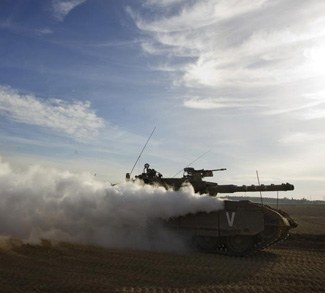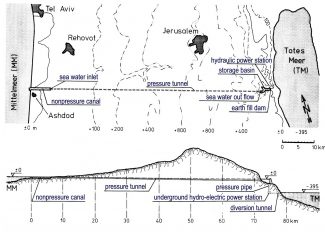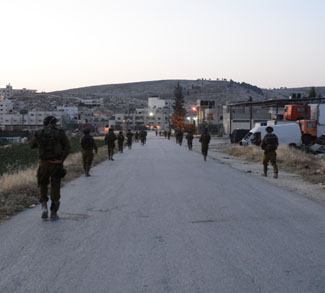Israel finally launched its ground offensive into Gaza on the night of July 17. Following on from the airstrikes and shelling which commenced earlier on July 8, it seeks to “eliminate the tunnels which Hamas uses to infiltrate weapons and personnel into Gaza.” Codenamed “Operation Protective Edge,” the military campaign was launched by Israel after three teenagers were found dead on June 30, having gone missing on June 12 in the area of Gush Etzion in the West Bank. Although Hamas declined responsibility for the kidnapping and killing, Israel blamed Hamas squarely for it. The public outrage in Israel even led to the killing of a Palestinian teenager on July 2 in East Jerusalem. Although Israel Prime Minister Benjamin Netanyahu denounced the killing of the Palestinian teenager, it did little to ease the hostile mood across both sides of the border between Israel and the Hamas-controlled Gaza Strip. This is the third major military offensive to have been launched on Gaza by Israel in the past few years; the earlier ones being Operation Cast Lead in December 2008 and Operation Pillar of Defence in November 2012.
As the ground offensive goes deeper into Gaza with every passing day, some critical questions need answering: What is the ultimate aim of this military offensive? Can this military offensive guarantee that Hamas will be weakened to a point that it stops being a threat to Israel’s security? Will it ensure that Hamas and its affiliates will no longer be able to dig tunnels across Gaza? Can this military offensive contribute to the final puzzle in the region; peace between Israel and Palestine and a viable two-state solution?
The Current Crisis
Although the current conflict has its immediate roots in the kidnapping and killing of the three teenagers, the primary causes could be debated. One the primary reasons could also be the failed peace talks which ended abruptly in April this year, when Israel broke off from the talks once Hamas and Fatah announced the formation of a unity government. The unity government, which finally came about on June 2, was viewed as a potential threat in Israel as the Hamas and Fatah reconciliation could not only strengthen Palestinian unity but also lead to increased calls for a separate Palestinian state. The June kidnappings could have been just the opportunity that Israel was looking for to target Hamas. Curiously, this is not the first time that Israeli citizens have been kidnapped, with a notable recent case being that of Israeli soldier Gilad Shalit, who was kidnapped by Hamas in June 2006. This is however the first time that Israel has launched a major military offensive based on such a kidnapping.
The Larger Question
In the ongoing military offensive, the larger question is of the immediate objectives and future payoffs. There have already been attempts to broker a ceasefire, first by Egypt on July 14 and lately by Qatar too. Although Israel has shown keenness to agree to a ceasefire, Hamas is not keen without any permanent peace guarantees from Israel. The immediate objectives of weakening Hamas’s military capabilities and destroying tunnels will most definitely be met without much resistance. The question is however of the larger goals. Previous military campaigns in 2008 and 2012 have clearly proved that Hamas has the capability to bounce back. Financial support to Hamas too has never been a problem.
With the entire region in turmoil and various international groups financing and equipping nations and rebel groups, rebuilding its military capability would not be a major problem.
Already, with pledging of support of $2.5 million by Turkey, about $33.5 million by Saudi Arabia, along with an undisclosed sum by Qatar as humanitarian aid, Hamas would be able to rebuild itself soon enough. With the entire region in turmoil and various international groups financing and equipping nations and rebel groups, rebuilding its military capability would not be a major problem. And on top of all this, Iran’s continued support to Hamas needs to be taken into consideration. Israel, therefore could find itself in a situation similar to January 2009 when it unilaterally called off the offensive stating that it had ‘met its military objectives.’ Although the Israeli prime minister can thank Hamas for helping to rally the entire Israeli nation behind his efforts, Israel would also need to note that Hamas too, which had been considerably weakened and even marginalized to some extent, now seems to have found a new voice and support from within the region and outside. The United States has so far supported Israel with President Obama speaking to Prime Minster Netanyahu on July 18, declaring that “no nation should accept rockets being fired into its borders or terrorists tunneling into its territory. The United States and our friends and allies are deeply concerned about the risks of further escalation and the loss of more innocent life.” However, rising casualties and global pressure may see this fragile support wavering. Regional countries including Saudi Arabia and Iran have already condemned the offensive, calling for an immediate ceasefire through the UN Security Council on July 21. It could therefore leave Israel in a delicate situation as to finding the right time to call off the offensive.
Looking Ahead
The immediate future looks bleak for the region. The peace process, which was dealt a severe blow when Israel broke off from the peace talks in April, might have been dealt a fatal blow given the course of current events. With continued hostility and insistence of Israel to continue with new settlements, the space and opportunity for a ‘two state solution’ is fast vanishing. While the crisis in Ukraine may have distracted some of the world’s attention, there is no disputing the fact the Palestinian issue remains the foremost conflict in the region.
Israel may be justified in launching military operations to ‘secure its immediate national security interests,’ however, it makes future peace prospects that much more bleak. Israel has to realize that Hamas cannot be eliminated from the face of the Earth. At some point in time, all Palestinian groups will have to be taken on board to seek peace in the region. If not, then Israel and the region may be faced with three options: first, the continuance of the present hostile situation with no prospects of peace or a viable Palestinian state; second, the occupation of all of Gaza to ensure the total subjugation of Hamas and the prevention of rocket attacks on Israel; or third, another serious attempt at peace and reconciliation. Whatever option Israel chooses, this short-term military offensive may well fall short of delivering on the long-term objectives of peace in the region.




